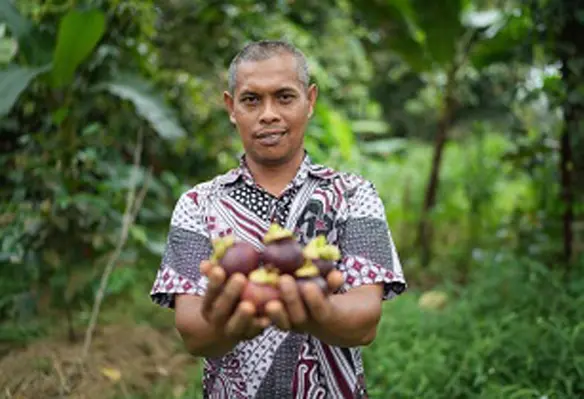The United Nations International Fund for Agricultural Development (IFAD) has signed a new initiative with the Government of Indonesia with the aim of transforming dryland farming in Indonesia
The objective of the initiative is to improve the climate resilience and profitability of dryland farming, thereby bolstering the livelihoods of more than 200,000 farmers over the course of the next five years. Co-financed by the Asian Development Bank (ADB), the Horticulture Development in Dryland Areas Sector Project (HDDAP) aims to elevate food availability, accessibility, and quality, while also building resilience to climate change.
Poverty, regional disparities, and climate change pose huge challenges, with rising sea levels, erratic rainfall patterns, and intensifying extreme weather events threatening the livelihoods of millions of farmers and jeopardizing food security. Given their remote location and lack of access to irrigation, dryland farmers are particularly disadvantaged. In addition, they are also hampered by weak local institutional capacity and limited access to inputs, technology and finance.
HDDAP has been designed to address Indonesia's climate change challenge in 13 districts across North Sumatra, West Java, Central Java, East Java, Bali, East Nusa Tenggara, and South Sulawesi by promoting climate-smart agriculture practices, improving infrastructure resilience, and strengthening the capacity of farmers and communities to adapt to changing climate conditions. Moreover, it will introduce drought-resistant crop varieties that can withstand water stress and maintain productivity in drier conditions; train farmers in water conservation practices, such as efficient irrigation techniques and rainwater harvesting, to optimise water use and reduce reliance on rainfall; and promote sustainable farming practices, such as organic farming and agroforestry, to enhance soil health and reduce reliance on chemical inputs.
The project will also invest in upgrading infrastructure and providing support in building infrastructure. Farmers will receive adequate training and extension services on climate-risk management strategies, with a focus on enhancing production through the availability of high quality planting materials along with the integration of digital technology in seed production.
“HDDAP marks a significant step forward in transforming Indonesia’s agriculture sector by empowering small-scale farmers to adapt to climate change, increase their incomes, and produce more nutritious food for their communities,” said Hani Abdelkader Elsadani, IFAD Country Director for Indonesia. “IFAD is proud to partner with the Indonesian government and the ADB to implement this innovative project, which aligns with our commitment to sustainable agriculture and rural development.”
For more information, visit: https://www.ifad.org/en/




